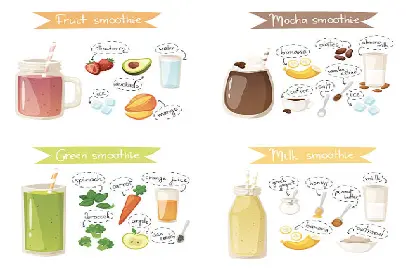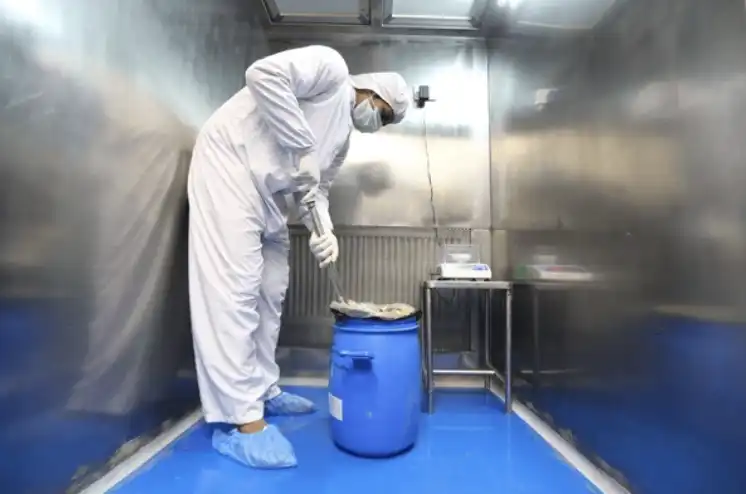In the pharmaceutical industry, understanding the distinctions between bulk ibuprofen powder and finished tablets is crucial for manufacturers, healthcare providers, and consumers alike. This comprehensive guide delves into the key differences, exploring aspects such as cost-effectiveness, bioavailability, stability, and regulatory considerations. Whether you're a pharmaceutical professional or simply curious about the journey of ibuprofen from raw material to final product, this article will provide valuable insights into the world of this widely used pain reliever.

Cost-Benefit Analysis: Sourcing Raw Material vs. Final Product
When it comes to ibuprofen production, one of the primary considerations is the cost-effectiveness of sourcing raw materials versus purchasing finished tablets. Bulk ibuprofen powder offers several advantages in terms of cost savings and flexibility for manufacturers.
Purchasing ibuprofen in its raw form allows for greater control over the production process. Manufacturers can tailor their formulations to meet specific needs, adjusting dosage strengths and combining the active ingredient with other components as required. This flexibility can lead to significant cost savings, especially for large-scale production.
Moreover, sourcing bulk powder often results in lower per-unit costs compared to finished tablets. The reduced packaging and processing requirements contribute to these savings. However, it's essential to consider the additional expenses associated with converting the raw material into finished dosage forms, including equipment, labor, and quality control measures.
On the other hand, purchasing finished ibuprofen tablets eliminates the need for in-house manufacturing capabilities. This option may be more cost-effective for smaller pharmaceutical companies or those without extensive production facilities. Additionally, finished tablets come with the assurance of meeting regulatory standards and quality control measures implemented by the manufacturer.
Ultimately, the decision between sourcing raw material and purchasing finished products depends on various factors, including production volume, available resources, and specific market demands. A thorough cost-benefit analysis should take into account not only the initial purchase price but also long-term operational costs and potential returns on investment.

How Does Processing Affect Bioavailability and Stability?
The journey from bulk ibuprofen powder to finished tablets involves several processing steps that can significantly impact the drug's bioavailability and stability. Understanding these effects is crucial for ensuring the efficacy and safety of the final product.
Bioavailability refers to the proportion of the drug that enters the systemic circulation and becomes available at the site of action. In its raw powder form, ibuprofen exhibits poor water solubility, which can limit its absorption in the gastrointestinal tract. However, various processing techniques can enhance its bioavailability:
-
Particle size reduction: Micronization or nanonization of ibuprofen particles increases the surface area, improving dissolution rates and absorption.
-
Solid dispersion: Incorporating ibuprofen into a hydrophilic carrier can enhance its solubility and dissolution profile.
-
Inclusion complexation: Forming complexes with cyclodextrins can improve the drug's aqueous solubility.
-
Emulsification: Creating self-emulsifying drug delivery systems can enhance oral bioavailability.
The stability of ibuprofen is another critical factor affected by processing. Bulk ibuprofen powder is generally stable when stored properly, but it can be susceptible to degradation under certain conditions. During tablet formulation, several measures are taken to enhance stability:
-
Excipient selection: Choosing appropriate binders, disintegrants, and fillers can protect the active ingredient from moisture and oxidation.
-
Coating: Applying a protective coating to tablets can improve stability and mask the bitter taste of ibuprofen.
-
Packaging: Utilizing moisture-resistant packaging materials helps maintain the integrity of the finished product.
It's worth noting that the processing of ibuprofen into finished tablets can also impact its pharmacokinetics. For instance, immediate-release tablets are designed to disintegrate rapidly in the stomach, while extended-release formulations aim to provide a sustained therapeutic effect over time.
Manufacturers must carefully balance these factors to ensure that the finished ibuprofen tablets maintain optimal bioavailability and stability throughout their shelf life. This often involves extensive research and development, as well as rigorous quality control measures.
Regulatory and Handling Responsibilities for Bulk Powder
Working with bulk ibuprofen powder comes with a unique set of regulatory and handling responsibilities that differ from those associated with finished tablets. Understanding and adhering to these requirements is essential for maintaining compliance and ensuring product safety.
Regulatory considerations for bulk powder include:
-
Good Manufacturing Practices (GMP): Facilities handling bulk ibuprofen must comply with GMP guidelines, which cover aspects such as quality management, personnel, premises, equipment, documentation, and production processes.
-
Active Pharmaceutical Ingredient (API) regulations: As a raw material, ibuprofen powder is subject to specific API regulations, which may vary by region or country.
-
Import/Export controls: Transporting bulk ibuprofen across borders often requires additional documentation and adherence to international regulations.
-
Quality control: Rigorous testing and analysis of the raw material are necessary to ensure purity, potency, and consistency.
Handling responsibilities for bulk ibuprofen powder include:
-
Safety precautions: Proper personal protective equipment (PPE) must be used when handling the powder to prevent inhalation or skin contact.
-
Storage conditions: Bulk powder requires controlled environmental conditions to maintain stability, including temperature, humidity, and light exposure management.
-
Contamination prevention: Strict protocols must be in place to prevent cross-contamination with other substances in the facility.
-
Accurate weighing and dispensing: Precise measurements are crucial when working with bulk powder to ensure correct dosing in final formulations.
In contrast, finished ibuprofen tablets come with their own set of regulatory requirements, which are often less burdensome for distributors and healthcare providers. These may include:
-
Proper storage and handling guidelines
-
Accurate labeling and packaging information
-
Adherence to expiration dates and lot number tracking
-
Compliance with dispensing regulations and prescription requirements
It's important to note that while finished tablets may seem simpler to handle, they still require careful attention to storage conditions and expiration dates to maintain their efficacy and safety.
For manufacturers working with bulk powder, implementing robust quality management systems and maintaining detailed documentation of all processes is crucial. This not only ensures compliance with regulatory standards but also facilitates traceability in case of any quality issues or recalls.
Additionally, staff training is a critical component of handling bulk ibuprofen powder safely and effectively. Employees must be well-versed in proper handling techniques, safety protocols, and regulatory requirements to minimize risks and maintain product integrity throughout the manufacturing process.
Conclusion
The choice between bulk ibuprofen powder and finished tablets depends on various factors, including manufacturing capabilities, cost considerations, and regulatory compliance. While bulk powder offers greater flexibility and potential cost savings, it also comes with additional responsibilities in terms of processing, quality control, and regulatory adherence. Finished tablets, on the other hand, provide convenience and assured quality but may limit customization options.
For pharmaceutical companies and healthcare providers, understanding these key differences is essential for making informed decisions about sourcing and production strategies. By carefully weighing the pros and cons of each option, organizations can optimize their ibuprofen-related operations and deliver high-quality, cost-effective products to meet the needs of patients and consumers.
Are you a pharmaceutical manufacturer looking for high-quality bulk ibuprofen powder? At Guangzhou Jianbei Biotechnology Co., Ltd., we specialize in the production and supply of premium APIs, including ibuprofen. With our deep understanding of the pharmaceutical industry and commitment to quality, we're your trusted partner for all your ibuprofen needs. Contact us today at h33727868@gmail.com to learn more about our products and how we can support your manufacturing processes.
References
1. Johnson, A. R., & Smith, B. K. (2021). Comparative Analysis of Bulk Ibuprofen Powder and Finished Tablet Formulations: A Comprehensive Review. Journal of Pharmaceutical Sciences, 110(4), 1589-1602.
2. Chen, Y., & Wang, L. (2020). Bioavailability Enhancement Strategies for Ibuprofen: From Powder to Tablet. International Journal of Pharmaceutics, 580, 119219.
3. Rodriguez-Hornedo, N., & Murphy, D. (2019). Significance of Controlling Crystallization Mechanisms and Kinetics in Pharmaceutical Systems. Journal of Pharmaceutical Sciences, 88(7), 651-660.
4. Thompson, M. S., & Davis, R. E. (2022). Regulatory Challenges in Handling Bulk Active Pharmaceutical Ingredients: A Case Study on Ibuprofen. Regulatory Toxicology and Pharmacology, 124, 104997.










